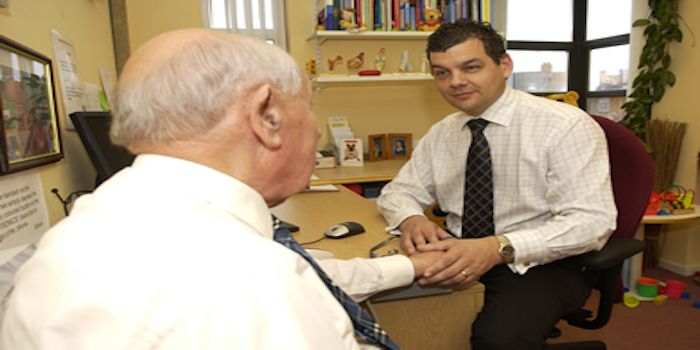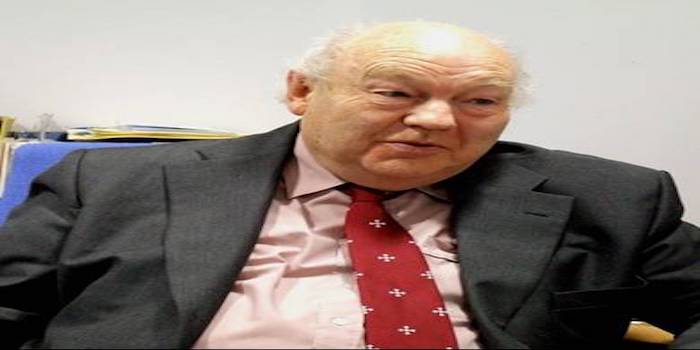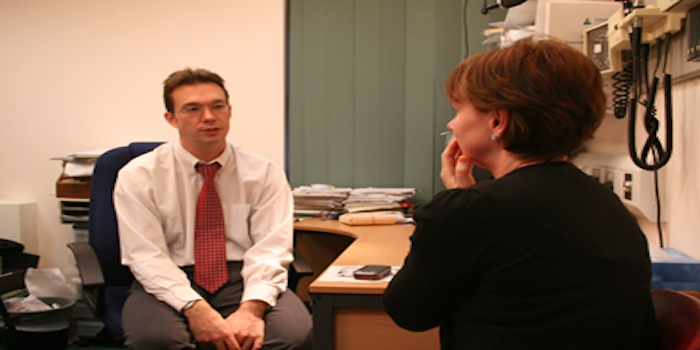Detecting Dementia in Primary Care course for GPs


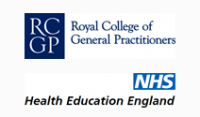
This session describes an approach to understanding the signs and symptoms of dementia in primary care and provides an overview of the epidemiology and diagnosis of dementia.
This session was reviewed by Sarah Jane Smith and last updated in January 2020.
Learning Objectives
By the end of this session you will be able to:
- Recognise the signs and symptoms of different types of dementia
- Explain how dementia affects younger adults, people with learning difficulties and people from diverse communities
- Recognise the differential diagnosis of dementia and when to refer to secondary care
- Distinguish those with memory symptoms caused by conditions other than dementia
- Describe the use of cognitive enhancing medications and be aware of potential side effects
- Discuss the use of medications to manage changes in behaviour and mood
We all become forgetful from time to time and can experience changes related to our ability to think clearly. The scenario of ‘walking into a room and forgetting what I came to get’ is familiar to most. Distinguishing normal forgetfulness from the early cognitive impairment caused by dementia can be extremely difficult.
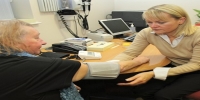
Louise Robinson is a GP and Professor of Primary Care and Ageing at Newcastle University. Her research programme is centred on Primary Care: Ageing and Older People’s Wellbeing, especially those living with dementia.
Louise is currently the Royal College of General Practitioners National Clinical Champion for Ageing and Older People and also leads the Primary Care Clinical Studies Group of the Dementia and Neurodegenerative Diseases Research Network (DeNDRoN).
She has published over 50 peer reviewed articles and co-authored the chapter on mental health for older people in primary care for the Oxford Textbook of Old Age Psychiatry.


Dr Emma Vardy is an NIHR clinical lecturer in elderly medicine working in the North West of England.
She has trained as a registrar in elderly medicine and completed a PhD on the subject of Alzheimer’s disease.
Her current role enables her to combine completion of her training in elderly medicine, experience in the diagnosis of dementia (working on the cerebral function unit at Salford Royal hospital) and continuation of her research interest in dementia.
- The Returning Traveller course for GPs
- Posted By eIntegrity Healthcare e-Learning
- Posted Date: 2025-02-22
- Location:Online
- This session is the third in a series of sessions about travel advice for patients and provides a br...
- Malaria course for GPs
- Posted By eIntegrity Healthcare e-Learning
- Posted Date: 2025-02-22
- Location:Online
- This session will help GPs to provide balanced, safe and sensible advice to patients travelling to m...
- Pre-Travel Advice course for GPs
- Posted By eIntegrity Healthcare e-Learning
- Posted Date: 2025-02-22
- Location:Online
- This session is the first in a series of sessions about travel advice for patients and provides a br...
- Guiding and Enabling Behaviour Change course for G...
- Posted By eIntegrity Healthcare e-Learning
- Posted Date: 2025-02-22
- Location:Online
- This session aims to equip you with the knowledge and understanding of how to take a guiding and col...
- Managing Obesity: Supporting Behaviour Change cour...
- Posted By eIntegrity Healthcare e-Learning
- Posted Date: 2025-02-22
- Location:Online
- This session looks at the type of support and services that can be offered for both children and adu...

